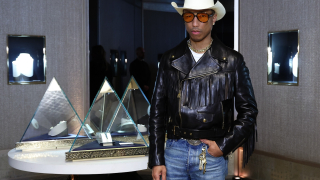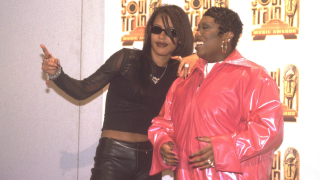Ferguson, Missouri has been in the national spotlight since the August 9th killing of unarmed Black teen, Michael Brown, Jr. The teen’s death at the hands of White police officer Darren Wilson has incited protests and strengthened the ongoing national debate on racial profiling and police brutality in Black communities. Indeed, Brown is just one of many Blacks recently killed during what many have seen as an unchecked spate of overzealous, trigger-happy policing. The cases of Eric Garner, John Crawford, Ezell Ford, Rekia Boyd, Kimani Gray, and Aiyana Jones—just to name a few—are a testament to the ever-increasing list of Black men and women gunned down by police, often with no recourse. This seeming disregard for Black life has done nothing to lessen the mistrust that many African Americans already have for the police.
Attorney General Eric Holder is on a mission to change this. Today, in the wake of the incidents stemming from Brown’s killing, the attorney general’s office is announcing a new federal initiative aimed at building trust between law enforcement and the communities that they serve. The attorney general, along with law enforcement experts from across the nation, will speak about the details of his federal initiative today in a meeting that is open to the press.
In his time as attorney general, Holder has been very frank with his opinions on the state of the criminal justice system. For example, in a speech to the American Bar Association, Holder did not mince words about the problems in our legal system, noting that, “While I have the utmost faith in – and dedication to – America’s legal system, we must face the reality that, as it stands, our system is in too many respects broken. The course we are on is far from sustainable.”
Similarly, in a commencement speech last year, Holder noted that outspoken acts of bigotry from the likes of Donald Sterling and Cliven Bundy “are not the true markers of the struggle that still must be waged, or the work that still needs to be done—because the greatest threats do not announce themselves in screaming headlines.” Instead, the real threats—albeit less sensationalist and attention grabbing threats—are the insidious and sometimes subtle ways in which racism permeates our everyday lives, particularly in our dealings with law enforcement and in the criminal justice system. It is the rampant racial profiling, the instances of stop-and-frisk, and criminalization of African Americans in our own backyards that more poignantly reflect the enduring legacy of racism.
In addition to his outspoken views on race, Holder has also attempted to address discrimination in the criminal justice system. He has, for instance, pushed for change in sentencing requirements for drug-related offenses. In the wake of the death of Trayvon Martin, Holder denounced “stand your ground” laws. And the Justice Department has regularly investigated issues of voter discrimination during Holder’s tenure in record numbers.
These facts potentially bode well for the upcoming federal initiative on community policing. But only time will tell if this new initiative will attempt to address the broad based systemic inequities in our criminal justice system—inequities that Holder himself has admitted—that all too often allow over-policing to occur unchecked.













